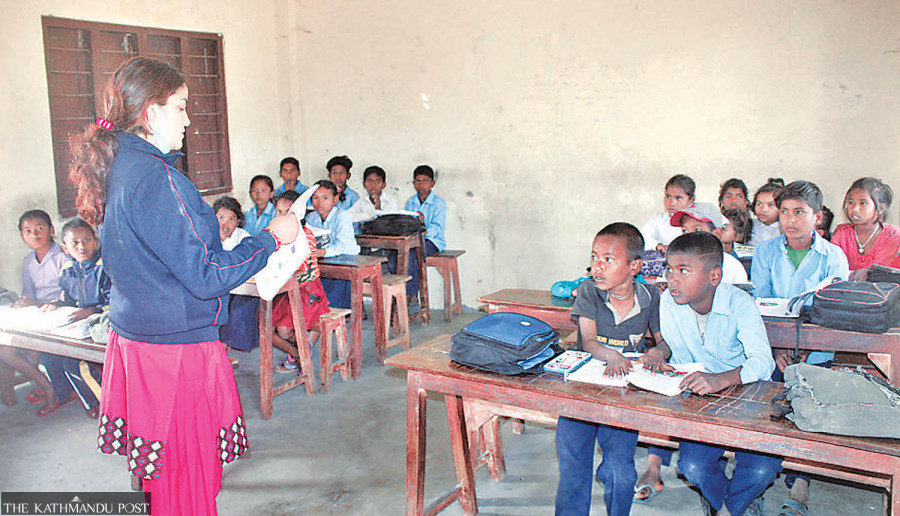National
Official raises some hackles by saying local units are unfit to handle school education
During grilling by a parliamentary panel over delay in federal education bill, the education secretary said local units don’t have capability and expertise to ensure quality of education.
Binod Ghimire
Amid the backlash over the government’s failure to draft a federal education bill, the claim last week by the education secretary that it was a mistake to give authority to local governments to handle the educational affairs up to secondary level, has created quite a stir among officials.
Answering queries from lawmakers in a parliamentary committee, Secretary at the Ministry of Education, Science and Technology Yadav Koirala on Tuesday said that the local governments are not capable of managing the secondary level education despite being given such an authority by the constitution. He claimed that the local governments neither have the capability nor the expertise to ensure quality of secondary level education and monitor the effectiveness.
“The constitutional provision allowing local governments to manage school education up to the secondary level was a mistake,” he told the Health and Education Committee of the lower house.
The committee had summoned Education Minister Devendra Poudel and senior officials at the ministry including Koirala to draw their attention to the delay in bringing the crucial federal education bill.
Local officials, who were also present at the meeting, took a strong exception to the statement and demanded that Yadav withdraw his statement and apologise. They termed Yadav’s statement as demeaning.
“The statement is irresponsible,” reads the letter submitted by local officials to Yadav. “It has undermined the morale of hundreds of education officers working under local governments throughout the country.”
The education officers said such a rash statement by federal officials who should be supporting local governments will not be helpful.
“It is his responsibility to support the local units if they are not capable,” Nawaraj Puri, an education officer at Panchakanya Rural Municipality in Nuwakot, told the Post.
The newly elected local level representatives also have taken a serious exception to Yadav’s statement saying it has only portrayed the centralised mindset of federal officials. “His statement is condemnable,” Bhim Prasad Dhungana, the mayor at Nilkantha Municipality in Dhading who is also the general secretary of the Municipal Association Nepal, told the Post. “Only those who are against federalism can make such a statement.”
Schedule 8 of the constitution gives local governments explicit authority to handle school education. It allows them to take necessary measures to manage school-level education within their jurisdictions.
Dhungana claimed that officials like Koirala, who are guided by centralised mindset, are responsible for the delay in the bill.
An Act and regulations are prerequisites for the implementation of the constitutional provision. In the absence of the law, local governments have not been able to exercise their constitutional authority yet.
The constitution makes it mandatory to have the laws related to the fundamental rights in place within three years since its promulgation. It also said the existing Acts that contradict the constitution must be revised within a year since the first meeting of the federal parliament. The government prepared the laws within the constitutional deadline. However, as there is no such constitutional deadline for the promulgation of federal laws, successive governments have become negligent in discharging their duty.
The parliamentary committee directed the ministry to present the Federal Education bill in parliament at the earliest. Minister Poudel has agreed.
Poudel is the fifth education minister since the promulgation of the Constitution of Nepal and third since the last general elections. And every minister has made similar promises. However, no minister has made good on their promises to have the Act in place.
“The local governments have been deprived of exercising constitutional authority in lack of an Act. They have already completed a five-year term,” said Dhungana. “We want the Act to be promulgated from the ongoing session of parliament.”




 22.17°C Kathmandu
22.17°C Kathmandu














